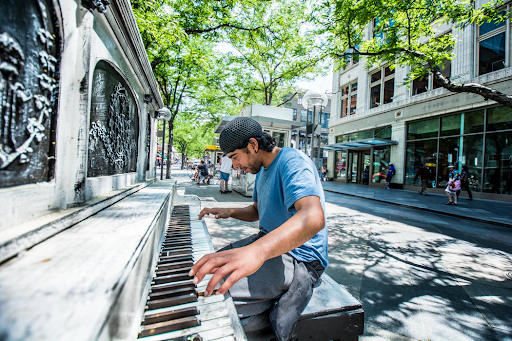
How Remote Performers Are Reclaiming Their Audiences
2020-10-27
Img Source: https://unsplash.com/photos/X0-uKrHO1no
As the world confronts coronavirus together, the continuing horrendous toll on human lives is rightfully taking center stage, but there are growing concerns from health experts that there are unforeseen and unpredictable impacts on people living now in different, difficult conditions over the past half-year.
Part of what makes us healthy and happy, with a good quality of life, is our emotional and mental health, and that comes from doing the very thing that defines us as a species: human interaction.
And perhaps the industry that best mirrors this need for human activity is also one of those most harmed by the current pandemic: the entertainment and performance industry.
